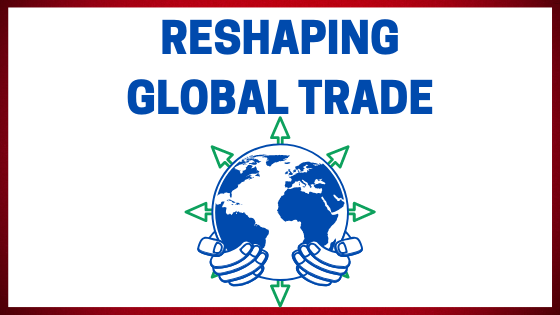The rapid and continuing spread of novel coronavirus (Covid-19) continues to have a significant social impact as well as a profound hit to the global economy. At the time of the World Health Organization’s (WHO) declaration of a global pandemic on March 11, 2020, the human toll of the disease stood at over 121,000 reported cases and 4,373 deaths spanning 110 countries.
These numbers are increasing, and the social and economic fallout continues. Stock market declines in major economies reflect growing difficulty doing business and investor uncertainty about the near future. Stock markets in the US fell nearly 10% on average on March 12 alone, with European stock markets falling well over 10% on the same day.
It is now obvious that no industry or economic sector will be spared by the impact of the virus. Notable declines in tourism and airline industries are reverberating across supply chains. Airline losses are estimated to be near $113 billion with governments mulling an economic stimulus for that industry.
Accordingly, trade flows are down, initially owing to the heavy toll of the virus on Chinese and other Asian manufacturing hubs, but also due to slowing consumer confidence and store closures worldwide. Initial layoffs in the Port of Los Angeles, the first in the US directly owing to the crisis, have begun while both manufacturing and construction industries are trying to postpone difficult measures.
As businesses close, events are cancelled, and employees are told to stay at home in impacted countries, not only has the now pandemic cause a global downturn, but it’s unclear how long it will last and if it will lead to a recession. Only recently, Goldman Sachs predicted that the US economy would grow only 0.9% in the first quarter and would not grow at all in the second quarter of 2020.
While the length and severity of the pandemic remains unknown, a fair follow-on consideration is how the global economy will prepare itself for the next crisis, and what the long-term impact will be on global trade flows.
The pandemic has shed a light on rising pre-crisis corporate debt. Concerns for vulnerably indebted companies and sectors and helped to spur central banks around the world to drop interest rates recently. Additionally, companies with too much supply chain exposure in China are likely to pursue efforts to diversify their supply chains, likely to other Asian locations or to North America.
As of March 3, 2020, Chinese companies had issued over 4,800 force majeure certificates, stating their inability to meet their contractual obligations with clients.
The need for companies to diversify their supply chain exposure and conduct systematic risk analysis is becoming more and more apparent. Will there be a shift, and will it help US manufacturers and exporters? As always, the interconnectedness of the global economy makes it difficult to gauge.
While US importers may look to diversify away from China, US exporters to China will no doubt suffer. Already, some analysts think that China will not be able to meet its obligations to increase purchases of US exports. It’s possible that North American manufacturers, with a new free trade agreement in place, could present a viable competitor to overseas supply chains that look increasingly risky, post-coronavirus.
Risk is the operative word and what this unfolding pandemic has shown is that preparation and risk assessment are crucial for companies in today’s economy. A major part of this effort should include proper insurance coverage for a wide range of contingencies.
Securitas Global Risk Solutions (“Securitas”) is an expert in helping companies develop trade credit and political risk transfer solutions that protect businesses from buyer non-payment and geo-political risks. As a specialty independent brokerage, Securitas is focused on developing comprehensive solutions that meet the needs of their client.
Recommended News
Franchise Group Inc. Bankruptcy and Restructuring
Franchise Group Inc. (FRG), owner of well-known retail brands like Vitamin Shoppe, Pet Supplies Plus, and Buddy’s Home...
Case Study: A Mis-Managed Credit Insurance Policy
Many property & casualty brokers are not familiar with trade credit insurance. There are a number of reasons for...
UPDATE: For EXIM Clients Affected by Natural Disasters
Image via: The Atlantic The Export-Import Bank of the United States (EXIM) has relief provisions in place for...





